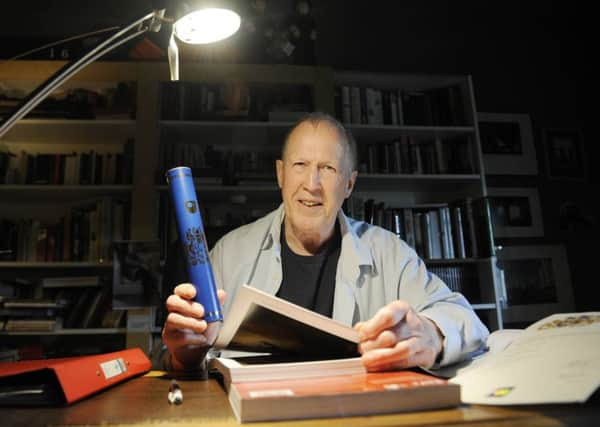Comment: Open University by name, open by nature


Hardly an interaction would go by without someone offering an anecdote of their own, or a close friend or relative’s experience of the Open University.
Five years later, as I get ready to leave the OU and move on to the next stage of my professional life, I find myself reflecting on all the things about this university that have made me feel so proud of having been a part of it.
Advertisement
Hide AdAdvertisement
Hide AdAt the risk of stating the obvious, the most important thing about the Open University is that it’s open. Open to people, places, methods and ideas.
Uniquely, it requires no qualifications of its undergraduate entrants, and 20 per cent of current undergraduates don’t have traditional university entry qualifications.
Besides open entry, what attracts many OU students is the flexibility of its provision. The OU model of supported, open learning means that students can fit their study round their lives, and that can be seen in the fact that so many OU students are in full- or part-time work, have family or other caring responsibilities, or have a disability. We also know that a significant proportion of OU students in Scotland live in areas with higher levels of deprivation and disadvantage, and that’s why I’ve been very pleased to see the critical issue of widening access to higher education moving further up the political agenda in recent months.
Making higher education accessible is what the Open University was created for almost 50 years ago, continues to do so today and I confidently predict for many years to come.
Whether it’s working with colleges across Scotland to make it easier for their students to bring credit for their previous study as part of an OU degree; offering the chance to try degree-level study to school pupils through the Young Applicants in Schools Scheme, building their confidence and enabling them to access a broader curriculum ; or working with trade unions to upskill their members, many of whom entered the workforce directly from school, the common thread is that desire to see those who might not otherwise have felt higher education was for them, get the chance to prove themselves wrong.
Often the most important thing OU students learn is what they’re actually capable of. The strength of Scotland’s system of higher education lies in the diversity of its institutions, each of which has specific expertise and mission.
Each of them takes their own distinct approach to teaching and learning, and we value that distinctiveness because it makes Scotland richer in so many different ways.
What we must remember is that students from Scotland have distinct characteristics, and together make up a highly diverse group, demographically, but also in terms of their academic needs. The traditional path – leaving school and going straight to university – does not work for everyone. A narrow focus on young school-leavers possessing standard university entry qualifications does a profound disservice, not only to other students who might benefit from study at higher education level, but to Scotland as a whole. A refocus on lifelong learning is now long overdue.
Advertisement
Hide AdAdvertisement
Hide AdThe Open University in Scotland will play its part in presenting evidence to the Scottish Government’s Commission on Widening Access – with its remit to recommend actions designed to make Scottish higher education more accessible. For in this university it will find a wealth of ideas and exemplars of how to make that laudable ambition a reality.
But none of this would be possible without the dedicated teams of OU staff from across Scotland and indeed the wider United Kingdom. Their dedication to whatever role they play in supporting students to achieve their goals and to the mission of the university are admirable and indeed are envied by many large organisations.
• Dr James Miller is the outgoing director of the Open University in Scotland www.open.ac.uk/scotland